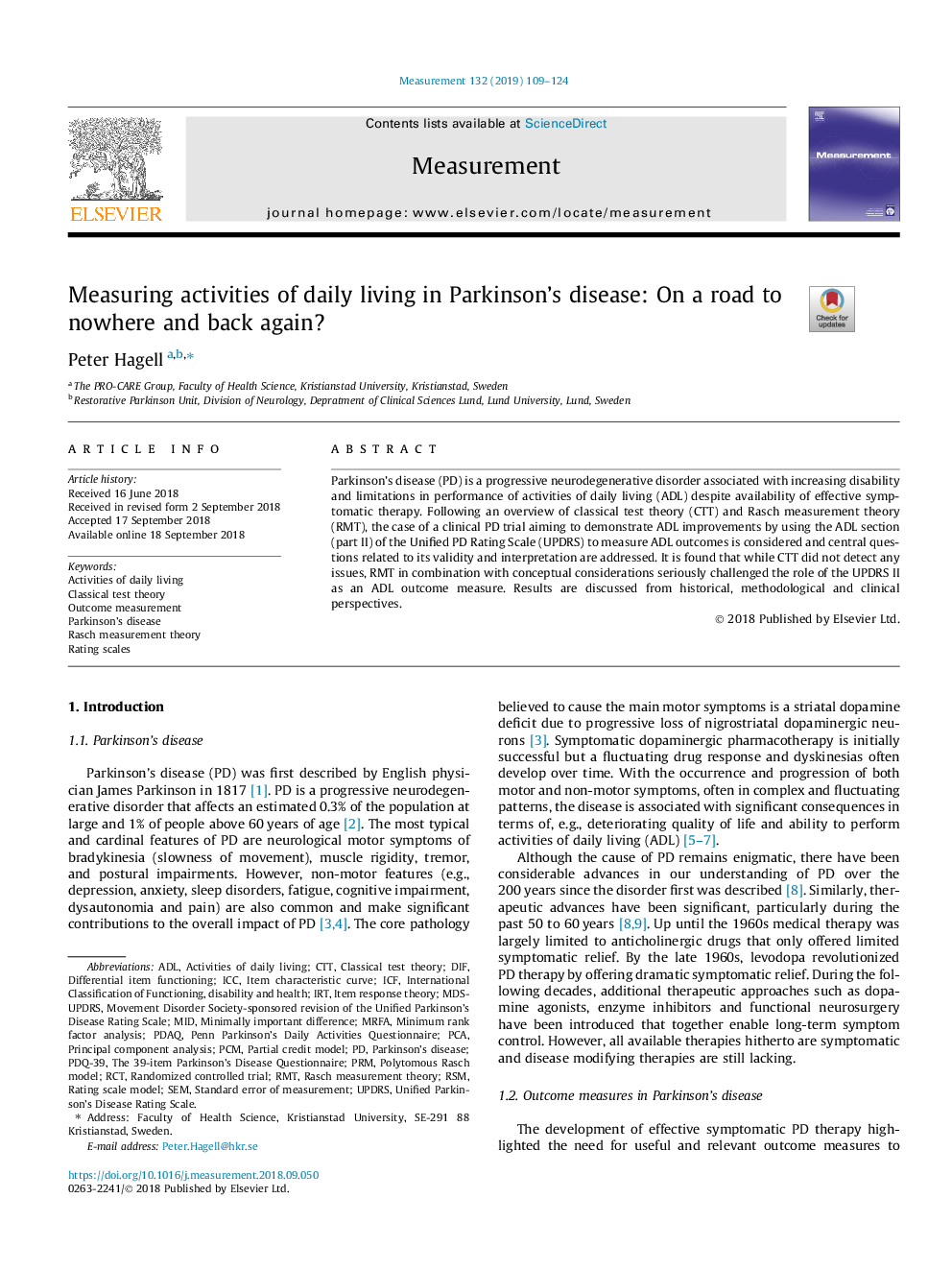| Article ID | Journal | Published Year | Pages | File Type |
|---|---|---|---|---|
| 10226341 | Measurement | 2019 | 16 Pages |
Abstract
Parkinson's disease (PD) is a progressive neurodegenerative disorder associated with increasing disability and limitations in performance of activities of daily living (ADL) despite availability of effective symptomatic therapy. Following an overview of classical test theory (CTT) and Rasch measurement theory (RMT), the case of a clinical PD trial aiming to demonstrate ADL improvements by using the ADL section (part II) of the Unified PD Rating Scale (UPDRS) to measure ADL outcomes is considered and central questions related to its validity and interpretation are addressed. It is found that while CTT did not detect any issues, RMT in combination with conceptual considerations seriously challenged the role of the UPDRS II as an ADL outcome measure. Results are discussed from historical, methodological and clinical perspectives.
Keywords
ADLPartial credit modelPCMICCIRTMDS-UPDRSICFPDQ-39PRMMIDDIFCTTPCAParkinson’s diseaseClassical Test TheoryPrincipal component analysisMinimally important differenceInternational classification of functioning, disability and healthActivities of daily livingItem Response TheoryDifferential item functioning
Related Topics
Physical Sciences and Engineering
Engineering
Control and Systems Engineering
Authors
Peter Hagell,
